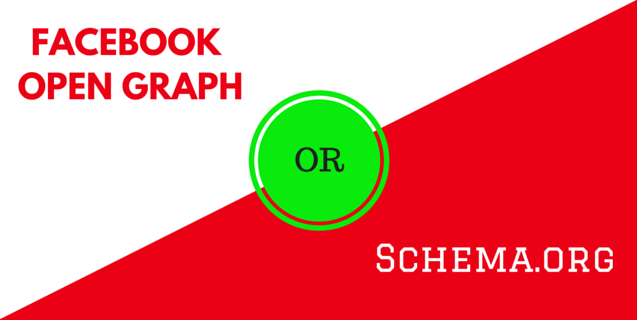In the ever-evolving word of search marketing, the importance of marking up data on content pages continues to grow. Markup tools like Schema.org or Facebook’s Open Graph feature are excellent ways to not only make it easy for search engines to find and understand elements of a webpage, but also for users to find and select the best page for their query.
However, we are often asked how these two different tools work together. Webmasters are often faced with question such as: Which is the preferable form of markup for a page? Is it better to Schema or the Open Graph? Which do search engines prefer? Is it necessary to use both and can they come into conflict with one another?
The Difference Between Open Graph and Schema
These are all good and important questions. In working through this, let’s start with the basics. It is important to understand just what Open Graph and Schema are meant to do.
As stated, Open Graph is specific to Facebook posts. Open Graph uses meta tags to allow you to control what content shows up when a page is shared on Facebook. These various meta tags control various display items such as the post tile, author, a description, etc.
Schema.org is geared more towards search engines specifically. With Schema, webmasters can markup their webpages with all sorts of specific elements. The whole goal is to simply make structured data that much easier for search engines to understand and process.
So, which should I use?
Well, as we stated, because Open Graph is very specific and very useful when it comes just to Facebook, it does a great job of marking up that data and giving webmasters control over how things are presented on that site specifically. We definitely recommend using it in that space. However, the obvious limitation here is that it is geared for just Facebook and not search engines as a whole. This is where Schema.org can come into play.
Because schema is specifically designed for search engines and as such allows for more detailed mark up. This would include things like pricing info, product lists, bios, etc. This additional detail is better received and more specific to the SERPs. This markup is the sort of thing which not only makes for better markup results appearing in SERP pages, but can also lead to better rankings in general.
For more information about how these two work together, feel free to check out this Google Post or the same info from Schema.org. I included a copy of the text below as well.
So, as you can see, it really isn’t an either/or proposition. It seems the best approach is to include both uses of markup accordingly. This dual approach should cover the site from both a Facebook and a search engine perspective and not cause any conflicts.

